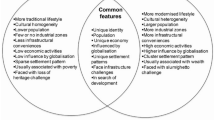Conclusion
The ultimate aim of sexual and reproductive research of disabled women is moving from the medical management of fertility prevention to attention to sexual pleasure and response, safe reproductive choices, safe pregnancy, labor, and delivery, and the ability to form healthy and loving relationships, healthy sexual identities, and a rich sexual culture within the disability community. The success of the research will depend on the influences of two factors. First, disabled women must define their own life problems. Here is where initial interviewing studies can be a rich source of research ideas. Understanding the realities of disabled women's lives depends on the investigator's viewing disabled women as the experts, viewing disabled women as a unique group, and not positioning nondisabled women as the standard of measurement.
The second influence is to ensure that disabled women have access to knowledge and play a role in designing interventions that will enable them to protect their own health and safety. In the deepest sense, research will be successful when the life of a disabled woman is no longer expendable; when harmful contraceptives are replaced by those that are in harmony with her body; when obstetricians learn safe vaginal delivery techniques; when sexual violence is not an inevitable hazard of being both disabled and female; when disabled lesbians no longer live a furtive life, having fallen in a crack between the lesbian and disability communities; and when disabled girls grow up with the confidence that they have a positive sexual future.
Similar content being viewed by others
References
Becker, E. (1978).Female sexuality following spinal cord injury. Bloomington, IN: Accent Special.
Fine, M, & Asch, A. (1988). Beyond pedestals. In A. Asch & M. Fine (Eds.),Women with disabilities: Essays in psychology, culture, and politics. Philadelphia: Temple University.
Foucault, M. (1980).The history of sexuality (Vol. 1). New York: Vintage Books.
Jackson, A. (1994, May). Development of research to improve management of pregnancy and delivery. Paper presented at the conference on The Health of Women with Physical Disabilities: Setting a Research Agenda for the 90s, Bethesda, MD.
Kirshbaum, M. (1994, May). Parenting. Paper presented at the conference on The Health of Women with Physical Disabilities: Setting a Research Agenda for the 90s, Bethesda, MD.
O'Toole, C. (1994, May). Lesbian issues. Paper presented at the conference on The Health of Women with Physical Disabilities: Setting a Research Agenda for the 90s, Bethesda, MD.
Rousso, H. (1994, May). Sense of self. Paper presented at the conference on The Health of Women with Physical Disabilities: Setting a Research Agenda for the 90s, Bethesda, MD.
Taylor, M.L. (1992). Women's health and public policy. In R.D. Apple (Ed.),Women, health, and medicine in America: A historical handbook. Brunswick, NJ: Rutgers University.
Verduyn, W. (1994, May). Obstetrical issues for women with disabilities. Paper presented at the conference on The Health of Women with Physical Disabilities: Setting a Research Agenda for the 90s, Bethesda, MD.
Waxman, B.F. (1994). Up against eugenics: Disabled women's challenge to receive reproductive health services.Sexuality and Disability, 12(2), 155–171.
Wellner, S. (1994, May). Gynecological issues for women. Paper presented at the conference on The Health of Women with Physical Disabilities: Setting a Research Agenda for the 90s, Bethesda, MD.
Whipple, B. (1994, May). Sexual response in women with physical disabilities. Paper presented at the conference on The Health of Women with Physical Disabilities: Setting a Research Agenda for the 90s, Bethesda, MD.
Zola, I.K. (1994). Towards inclusion: The role of people with disabilities in policy and research issues in the United States—A historical and political analysis. In M. Rioux and M. Bach (Eds.),Disability is not measles. North York, Ontario: Roher Institute.
Author information
Authors and Affiliations
Rights and permissions
About this article
Cite this article
Waxman, B.F. Commentary on sexual and reproductive health. Sex Disabil 14, 237–244 (1996). https://doi.org/10.1007/BF02590081
Issue Date:
DOI: https://doi.org/10.1007/BF02590081




